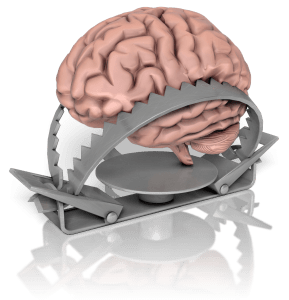Question: How do I manage my emotions?
Dr. Gala’s Response:
Learning to manage emotions can be challenging for anyone. For someone in recovery from addiction, it’s one of the keys to successful recovery.
The human brain is developing well into our 20’s. Emotions are processed in the part of the brain that is designed to respond to conditions WITHOUT thinking. As the decision-making part of the brain develops, these emotions and their corresponding response are run through a filter of sorts. We feel an emotion and then decide how to respond.
For addicts, the development of the brain has typically been altered along the way. Simply engaging in a behavior to the point of addiction arrests the brain’s normal development process.

If a traumatic experience was not processed emotionally, it may have created a glitch in the brain. When a present-time experience triggers the memory, the brain reacts as if the original traumatic experience was being repeated.
As you might imagine, this does not end well most of the time.
Fortunately, the brain can be healed. This requires eliminating the behaviors that are interfering with the healthy neural connections and re-processing traumatic experiences to repair the glitch we referred to above.
Emotional regulation is the ability to feel an emotion and have some choice over how we respond. You’ll know if you have a problem with emotional regulation if you get angry about something and fly off the handle. If you’re accustomed to slamming doors or throwing things, you are not regulating your emotions. With emotional regulation, you can say, I really feel angry about X. I’d better go out for a walk and cool off.
So, learning to manage emotions for somebody with an addiction problem comes right after getting sober. Since the process of emotional maturation has been arrested somewhere along the line, a recovering addict may hear they need to grow up. It’s not uncommon for adult addicts to have the emotional maturity of a seven or eight-year old because they were traumatized in some way at about that age. The trauma stunted the emotional maturation process.
The key is to develop awareness. Awareness recognizes the emotion and, as awareness grows, even the underlying trigger. This allows you to process an otherwise out-of-control emotion rising up in you.
[responsive_video type=’youtube’ hide_related=’1′ hide_logo=’1′ hide_controls=’0′ hide_title=’1′ hide_fullscreen=’0′ autoplay=’0′]https://www.youtube.com/watch?v=pTQNOCtgRww&feature=youtu.be[/responsive_video]
Practicing meditation is one of the best ways to begin developing awareness. We’ve recommend some advanced tools for meditation that you can learn more about in the Resources section of the RecoverYES website. Meditation will make you more resilient and help to develop the gap. It’s the gap between feeling an emotion and taking action related to that emotion that provides the moments necessary to make a choice.
Most addicts are using their addictive behavior to cope with emotional triggers. When the behavior is no longer available, the emotional triggers will feel out of control at first. It will be much easier to maintain sobriety if learning to manage emotions is Job 1 in recovery.
